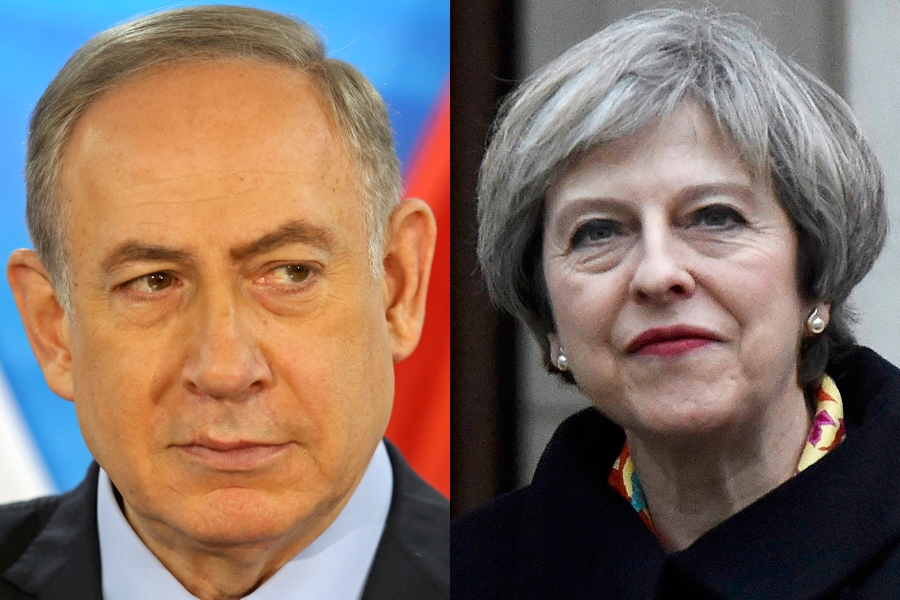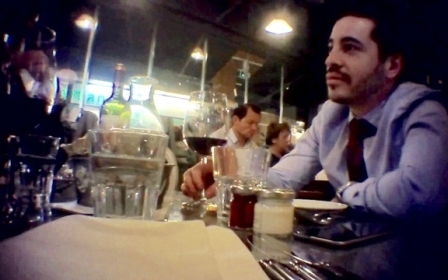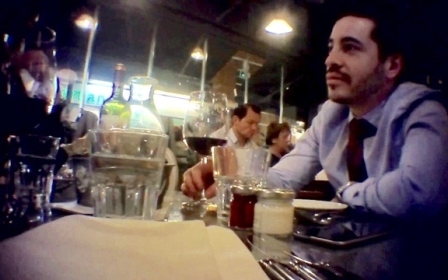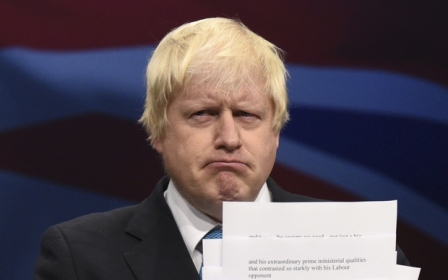Israel embassy plot off agenda as Netanyahu visits Britain

Britain's prime minister is expected to steer clear of raising the recent plot by an Israeli embassy staffer to "take down" a senior member of her government during talks with her counterpart, Benjamin Netanyahu, next week.
Theresa May's spokeswoman said on Thursday that the issue of illegal settlements would be included in the Monday meeting, but that the talks would focus more on trade deals after Britain's exit from the EU.
But the prime minister's media office told Middle East Eye that the issue of Shai Masot, a senior political officer in the Israeli embassy who was caught plotting against her anti-occupation deputy foreign secretary Alan Duncan, were not confirmed as on the agenda.
The British government has said it considers the matter closed, and has rejected calls from opposition parties for a full investigation into the affair as a matter of national security.
A public petition, launched last month, has attracted more than the required number of signatures needed for the government to respond on the matter.
Israel embassy plot: 10,000 sign UK petition for investigation
A Downing Street media officer told MEE the agenda would concern "higher level", "broader" issues including Syria, Iran and free trade relationships after Britain leaves the EU.
"The prime minister's spokesperson did not mention it [Shai Masot] in her brief summary this morning. But she also did not go into every topic they would be discussing," she said.
She will, however, set out Britain's concerns over an increase in Israeli settlement activity in occupied lands on which the Palestinians hope to create independent state, the spokeswoman said.
"I would expect the prime minister to set out the government's position that we think the continued increase in settlement activity undermines trust," she said.
"Our focus is on how do we make a two-state solution with an Israel that is safe from terrorism and a Palestinian state that is viable and sovereign, work?"
In December, Britain voted for a UN Security Council resolution demanding an end to Israeli settlement-building in land occupied in 1967. In a break with traditional policy, then US President Barack Obama refused to veto the resolution.
But May has also shown herself to be close to Israel - scolding then US Secretary of State John Kerry for a speech criticising Israeli policy.
No UK backing at peace conference
Last month Britain said it had reservations about a French-organised Middle East peace conference in Paris and did not back the final communique by 70 countries, which reaffirmed that only a two-state solution could resolve the Israeli-Palestinian conflict. Its stance angered many EU members.
Netanyahu has been encouraged by the election of Donald Trump in the US, who has signalled he could be more accommodating toward settlement building than his predecessor.
Trump's team has also spoken of moving the US embassy from Tel Aviv to Jerusalem, Israel's self-proclaimed capital and a holy city at the heart of the Israeli-Palestinian conflict. Britain has said it does not intend to follow suit.
Speaking at a West Bank settlement on Thursday, Netanyahu said he would raise the issue of Iran with May.
"I am going to speak with her about the changing reality in our region and the need to adopt new, different and common approaches towards the huge threats in our region, primarily the threat from Iran," Netanyahu said.
May's spokeswoman said Britain believed the Iran nuclear deal was "vitally important for regional security".
Middle East Eye propose une couverture et une analyse indépendantes et incomparables du Moyen-Orient, de l’Afrique du Nord et d’autres régions du monde. Pour en savoir plus sur la reprise de ce contenu et les frais qui s’appliquent, veuillez remplir ce formulaire [en anglais]. Pour en savoir plus sur MEE, cliquez ici [en anglais].




